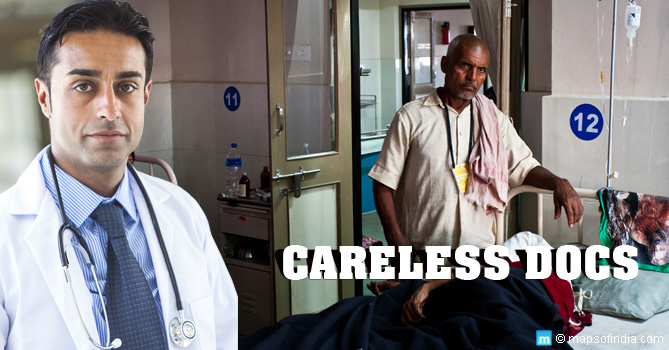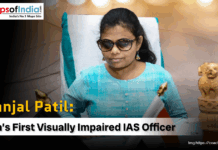Medical services and infrastructure is expanding rapidly in India and is fast turning into an industry in terms of its size, employment capability, service provided and most of all, focus on profitability. The problem is that the rapid growth and expansion of medical services, under both government and private sector, has not been supported by laws that adequately provide for checks and balances.
Today, it is very easy for a doctor to set up a private practice anywhere in the country and start offering his services. There are no checks or balances on the quality of his education or experience and once he receives his medical qualification, there is no intervention from the government or any other agency thereafter to benchmark his services or monitor the quality of his infrastructure.
This becomes the starting point of medical negligence at an initial level in the private sector. At a larger level, lies the unchecked growth of private clinics and mini hospitals that operate with minimal attention to health or hygiene, and to pre and post hospitalization care. In most such places, post-surgical infections and post-surgical complications are frequent, but there is very little recourse for the suffering patient and their family members.
The situation is no better in government-run hospitals where the overall maintenance and hygiene resembles a railway station toilet. In most of these hospitals, very little attention is given or investment is made to maintain facilities. As a result, the sheer presence of filth within the hospital premises becomes a breeding ground for primary and secondary infections of all kinds.
The situation is so bad that concepts like monitoring of pathogens in the air that enter through air conditioning ducts is unheard of in government-run hospitals and most of the smaller private hospitals. These are only now becoming standard practices is some of the larger private sector hospitals, but they are commercially out of reach for most of the population.
This adds to the overwhelming number of patients in each hospital which puts the attending doctor and support staff under severe work pressure. Under these circumstances, it is only natural that cases of medical negligence on part of the doctor or support staff occur.
However, the lack of infrastructure and shortage of medical staff is still no reason or justification for medical negligence. Very often, we hear of cases where the doctor has left an instrument inside a patient during surgery or cases where a patient has adversely reacted to a medication prescribed by a doctor, who would not have prescribed it to the patient in the first place, if he had properly probed the patient’s medical history. And when such cases of negligence do occur, where a patient loses his life or a limb, there is very little recourse to justice or compensation.
Existing laws favour the doctor and not the patient
Unfortunately, the laws are such that they still are weighed in favour of the doctor, as society still holds the medical profession in high esteem. As a result, in the rare case when a patient approaches a court seeking action against the doctor and compensation for negligence, the process of law takes years for the case to move from the lower courts to High Court and finally to the Supreme Court.
Many times, suffering patients expire before a judgement gets passed or if a patient loses his life due to the doctor’s negligence, then the family member who fights for compensation may lose his life through the long drawn trial period. This is the reason why many suffering patients and their family members are hesitant in approaching the courts.
Landmark judgement in Medical Negligence Law in India
In May 1998, Mrs Anuradha Saha, 36 years, died due to negligence at the hands of some doctors of AMRI Hospital in Kolkata. Anuradha Saha, a qualified Child Psychologist from Columbia University, New York, lived in the US along with her husband Dr Kunal Saha, a medical doctor researching on HIV/AIDS in Ohio State University.
On a personal short trip to India, Anuradha developed rashes on her skin and approached Dr Sukumar Mukherjee, a well-known specialist in the related field. He administered steroids that led to worsening of Anuradha’s health. On Dr Mukherjee’s advice, she was admitted to AMRI hospital and remained under his care and other specialists of the hospital. Her condition continued to deteriorate, finally leading to her death.
Dr Kunal Saha filed a case of negligence against the concerned doctors and AMRI hospital. The case took its time but the lower courts rejected the case for negligence on part of the doctors or hospital. He then approached the High Court in Kolkata and got the same verdict. He finally approached the Supreme Court, which in a landmark verdict, ordered compensation of close to $1 million to Dr Kunal Saha.
While this was a landmark case and would form the basis for future appeals against medical negligence, it must be noted that the court did not accept criminal negligence on part of the doctor and he was not barred from further practice. This is the same hospital that was in the news when it caught fire, again due to negligence, in which several patients lost their lives and many suffered serious injuries. The hospital continues to thrive.
The prolonged case cost Dr Saha his job at Ohio State University, he lost his home in the US, and was forced to file for bankruptcy in 2011.
Dr Kunal Saha has since started an NGO in Kolkata called People for Better Treatment (PBT), to assist and guide other similar victims to approach the courts for compensation and justice.
While Dr Kunal Saha, being a doctor and having access to good medical opinion abroad and in India, was able to put up a strong case to ultimately win his case, but what happens to the teeming millions in India who have no idea or money to go through the long and complex legal system.
Need for urgent review of laws on medical negligence
The government has provided for victims of medical negligence to approach consumer courts for compensation, but the sheer backlog of cases makes the waiting period excruciatingly long. Besides, the laws are still very much in favour of doctors, as the medical fraternity has been lobbying hard against any change in laws that will threaten a doctor’s right to practice. In the meanwhile, doctors and hospitals continue to ply their trade without any fear of action or penalty.





